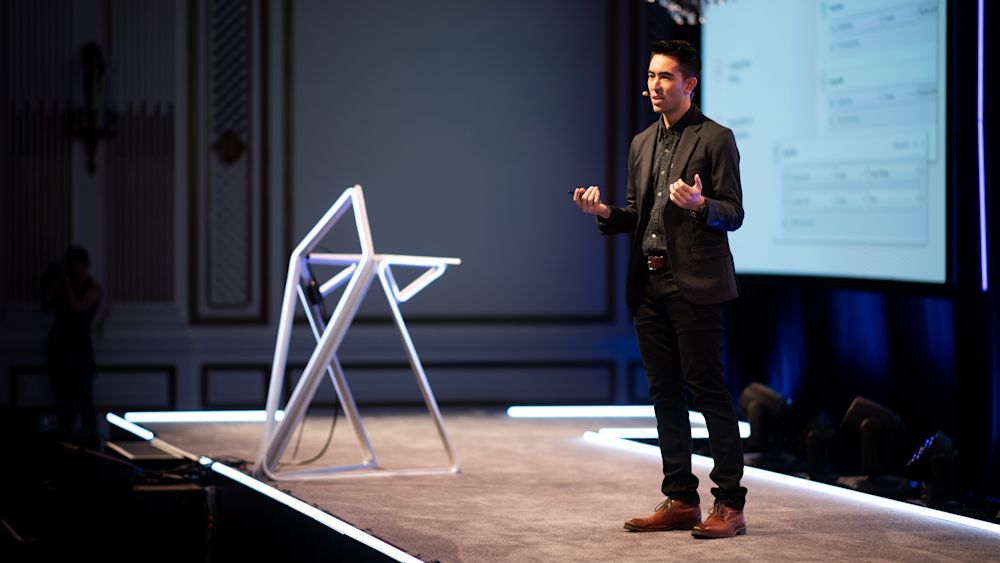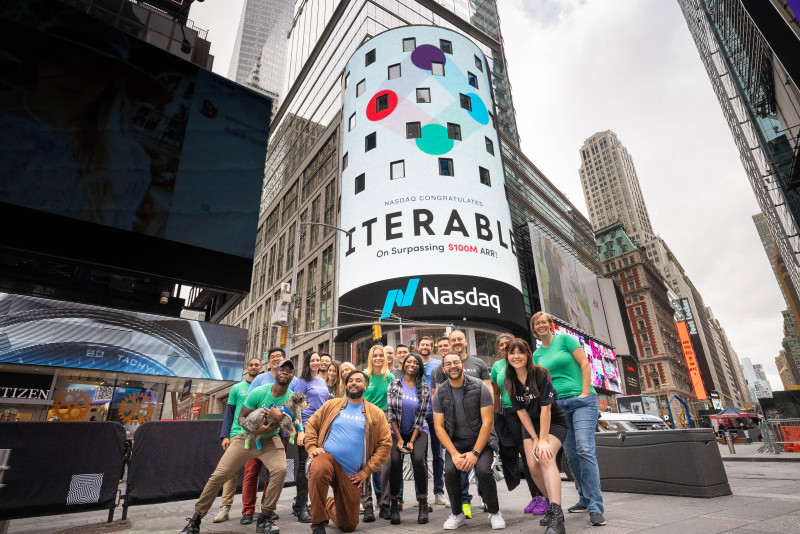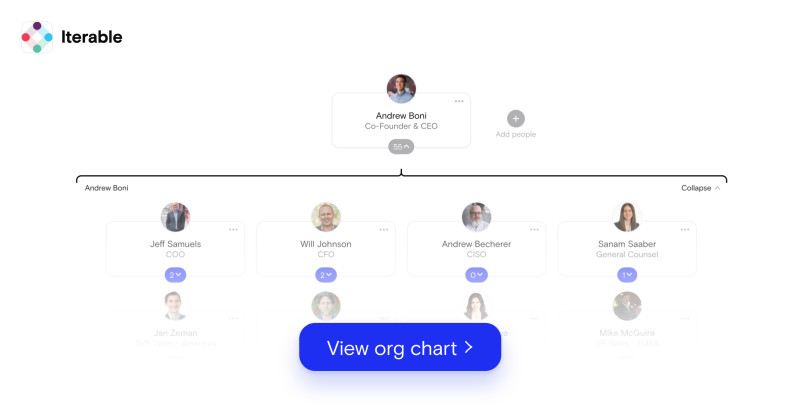The Decisions That Made Iterable A $2 Billion Business
Table of contents
Valued at $2 billion, cross-channel marketing platform Iterable is making waves in Silicon Valley, taking on giants like Oracle and Salesforce and gaining market share in the enterprise computing sector. Its platform is designed to simplify relationships between consumers and brands and has attracted notable clients including DoorDash and Zillow. The Org spoke with Iterable's founder, Andrew Boni to learn about how he grew his business.

A focus on customer success
After spending months coding together in a tiny room, Boni and Zhu created the first version of Iterable — but the founders needed customers to really prove the value of their product. As an introvert, Boni knew he had to step out of his comfort zone to learn a way around pitching. Conscious that he needed to learn a new skill, he practiced speaking and presenting until he finally managed to convince the first few users of Iterable’s value.
“While they weren’t yet paying customers, it was still a major win for us, because we had companies using our platform,” Boni said. “It’s still one of my most memorable experiences at Iterable. I grew immensely — as an individual and as a leader — during this time period.”
Once companies began using the platform, the Iterable team wanted to make sure that customers were getting the most out of its product. The startup focused on growing its customer success team, which focused on solving problems for clients before they emerged.
“When our customers succeed, we succeed. It’s that simple. That’s why customer success was really the first team we focused on growing at the company,” Boni said.
Today, the customer success team at Iterable is still on the front lines of delivering support and providing insights to the startup’s clients.
“In a world that is always evolving and automating, the teams behind the tech — like customer success — are what drive value,” Boni said.
Hiring diverse talent
At the core of Iterable’s growth is its commitment to its core values of balance, trust, humility and maintaining a growth mindset, and so when it comes to hiring and growing his team, these are things Boni keeps in mind.
“Every single Iterator, the term we call employees, is smarter than me in one way or another and brings something new to the table,” Boni said. “I am constantly challenged, constantly learning. It keeps me hungry for more. It’s the reason Iterable has been so successful, because we’re always working with the smartest people we know.”
Diversity has been at the forefront of Boni’s mind when it comes to hiring and retaining talent. Iterable’s recruiting team focuses on using language that is inclusive and gender-balanced and sources its applicants directly from minority communities in the tech industry. The company also provides quarterly workshop training against unconscious biases.

To further prove his commitment to diversity, In August this year, Iterable appointed Markita Jack, a human resource executive with over 17 years of experience, as its first Head of Diversity, Equity and Inclusion.
“I’m committed to building a team that is diverse in thought, diverse in background and perspective,” Boni said. “This mindset is especially important in male-dominated industries, like tech, where innovation and iteration are currency. Creating a company that reflects the incredible diversity of consumers, suppliers and communities we have is truly essential.”
Founders File Q&A:
What’s one piece of advice you wish you could tell your younger self?
Get outside of your comfort zone. Don't be afraid to take calculated risks when it comes to your career. Growth is what happens when you're just outside of your comfort zone. As an employee at Google, it was difficult in the moment to leave the safety and security of a big company with great people and an audacious mission. What would happen if I failed at starting my own company, and ended up with nothing? It’s totally natural to want to protect yourself from failure and to feel anxious about uncertainty. But had I succumbed to this fear, and stayed at Google, Iterable would not exist. I wouldn’t be the CEO of an incredible 600 person team. We wouldn’t have a company with nearly 1,000 happy customers doing $100 million in Annual Recurring Revenue (ARR).
What’s your number one productivity hack?
I’ve never been a big fan of organizations that have a strict chain of command. I was really lucky at Google, because we had an extremely open, collaborative and supportive environment on my team. We were free to share feedback at any moment, to any individual. Innovation and open-mindedness was readily rewarded. As a result, ideas were free-flowing.
It’s with this mindset that we designed Iterable. At this time, employees can Slack message any individual at the company — myself, managers, new hires, etc. People are encouraged to speak at Town Halls through the Slid.o AMA function, which we still proudly hold on a weekly basis. We’re agile and more work gets done because of it. We work hard to create an inclusive culture where people feel like they belong.
In an email to his staff published on Inc.com, Elon Musk tells employees “communication should travel via the shortest path necessary to get the job done.” In this instance, Elon is absolutely right. As we grow, it’s a priority of mine to keep a fluid chain of communications and operations. Free flowing information and advice at all levels. That’s how I make things happen. And that's how I want Iterators to work as well.
What do you do to clear your head?
If I'm stressed or worried about a particular challenge, I’m not thinking clearly. And if I’m not thinking clearly, I can’t lead as effectively. I’ve always found the best way to clear my mind is to change my focus - to step outside, get some fresh air, and exercise. There's a lot of science behind exercise and its positive effects on reducing stress and anxiety. I’m a passionate cyclist and runner, so I naturally gravitate towards running or biking around San Francisco or Marin when I need to clear my head and refocus. It’s a really foolproof and enjoyable way for me to get out of any brooding or clouded headspace. Maybe it's the repetitive movement of pedaling or running. Maybe it's the cool fog around me. But whatever it is — it works.
Create your own free org chart today!
Show off your great team with a public org chart. Build a culture of recognition, get more exposure, attract new customers, and highlight existing talent to attract more great talent. Click here to get started for free today.
In this article


The ORG helps
you hire great
candidates
Free to use – try today

